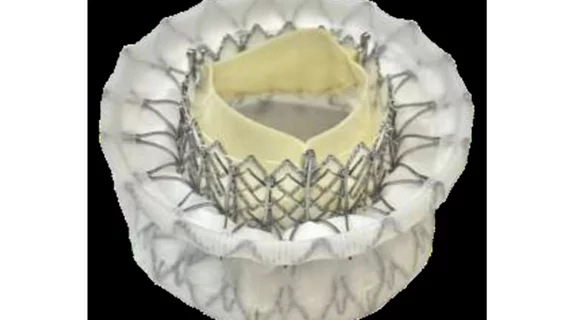Cardiologist praises updated design of new TMVR system after historic interventional procedure
A team of cardiologists and cardiac surgeons in North Carolina has made a bit of interventional cardiology history, becoming just the second group in the world to perform a transcatheter mitral valve replacement (TMVR) using the latest Cephea TMVR system.
The procedure was completed at the Sanger Heart & Vascular Institute in Charlotte, North Carolina, a part of the Atrium Health system.
“With its advanced design, this new valve system is easy to deploy and stays in place. We hope it will prove to be a breakthrough,” Michael Rinaldi, MD, interventional cardiologist and medical director of the structural heart program at Sanger Heart & Vascular Institute, said in a statement. “It holds promise for patients with advanced mitral valve disease, many of whom are elderly and for whom conventional heart surgery is not recommended.”
TMVR procedures using Cephea’s device take approximately 90 minutes to complete. Most patients are mobile by the following day and can expect to go home from the hospital within a few days.
“It takes a coordinated team of specialists with expertise in treating valve diseases to provide the best care for patients with mitral valve disease,” Rinaldi added.
Abbott acquired Cephea in 2019, highlighting the company’s “novel approach to replace the mitral valve.”
Sanger Heart & Vascular Institute celebrates more than 2,000 TAVRs
On Aug. 8, the Sanger Heart & Vascular Institute team announced that it had completed 2,022 transcatheter aortic valve replacements (TAVRs) in the past 10 years.
“Aortic stenosis touches a lot of people's lives, and TAVR can dramatically improve their survival rate,” Rinaldi said at the time in a separate statement. “We've refined this therapy over time to become something that is very safe and effective.”
A two-minute video from Atrium Health details exactly what happens during TAVR. Watch the full video here.

